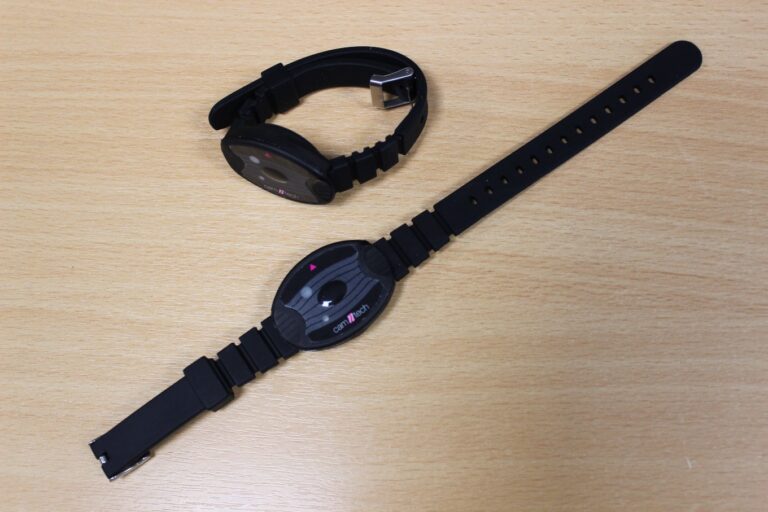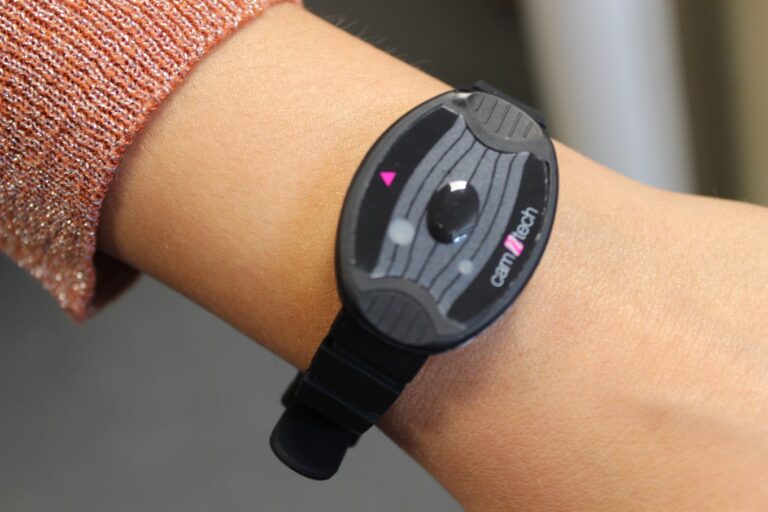4 October 2022
Motion watch detects sleep abnormalities
You feel tired all of the time. You fall asleep in class. Then when you go to bed, sleep eludes you, but you don’t know why. You are referred to a sleep clinic where, rather than spending the night in hospital, you just have to wear a special watch that will monitor your sleep patterns.
“In Southampton Children’s Hospital, we are one of only a few specialist centres in the UK that diagnose and treat sleep disorders,” explains Vanessa Hewertson, paediatric clinical sleep fellow.
“The demand on our services has grown significantly over the last few years, receiving around 600 referrals a year from all over the UK.
One of the most used pieces of equipment is an actigraphy watch which we ask our patients to wear for one to two weeks. The device provides us with important information, such as sleep quality and circadian rhythm patterns.
We see a significant number of young people with circadian rhythm disorders. This is where the biological clock has got out of sync with the 24-hour environment, which often impacts the young person’s ability to access education.


The information obtained from the actigraphy devices enables us to develop personalised treatment programmes to help realign their body clock.
Alongside this, we see rare sleep disorders such as narcolepsy. Although more complex sleep studies are required to diagnose Narcolepsy, actigraphy is an important part of the diagnostic work up, as recommended by the American Academy of Sleep Medicine.
We also manage children with a rare sleep disorder, sleep related rhythmic movement disorder, where children and young people rhythmically rock themselves to sleep. We use actigraphy as part of the diagnostic work up as it provides helpful information about the severity of the disorder.
One of the advantages of actigraphy is that it provides information about how the child or young person is sleeping at home, rather than in a hospital setting. It enables us to capture information over a number of nights, rather than just one.
With the growing numbers of referrals to our service, it was important to expand the number of actigraphy watches to reduce patient waiting times for diagnosis and treatment.
We’ve been able to fund 32 watches to support our sleep service using NHS funding and charity support. Additionally, through Southampton Hospitals Charity, we’ve been able to purchase the last batch of watches for our patients.”
